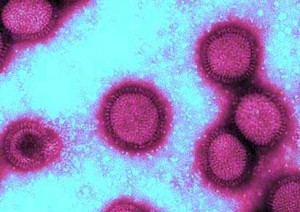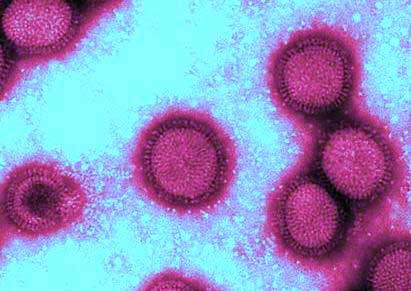By Saber Ayyub.

Tripoli, 8 February 2016:
One child has died and another is seriously ill with H1N1 (swine flu) virus, according the . . .[restrict]the National Disease Control Centre in Tripoli. There are five further unconfirmed cases. The death took place at the Al-Jalaa Children’s hospital last Thursday.
The young, elderly and infirm are most at risk from swine flu.
The World Health Organisation has not yet listed a Libyan outbreak of the virus. So far this year it has only recorded in January a few cases in Pakistan, in Multan and Lahore.
However one Tripoli doctor, who did not wish to be named, told this newspaper that he believed that the H1N1 virus has been in the capital since at least December. This had been denied by the medical authorities as recently as 30 January. Most medical centres however lacked the necessary diagnostic tools to identify it.
“Personally, I think there are more than two cases” he said “ in the last two days I have been concerned about three cases. Without proper diagnosis, lives are going to be lost”.
He added that stocks of the vaccine Tamiflu were held in medical centres.
The WHO did not respond today to the questions about its understanding of the possible presence of swine flu in Libya.
The organisation’s standard advice on symptoms and infection runs: “Once a person has contracted the swine flu, they will notice similar symptoms found with any influenza virus, fever, cough, body aches and so on. The swine flu is more commonly known as a respiratory infection, which is caused by the virus that at one time, was only found among pigs.
“The virus directly attacks the respiratory tract including the nose, throat, and lungs. The only difference seen between the swine flu and other influenza viruses is that some cases of vomiting and diarrhoea have been noted with swine flu.
“Once a human has contracted the swine flu, it is passed onto other humans through the air from coughs or sneezes or by touching an infected person and then touching your eyes, nose, or mouth. After being in contact with a person with swine flu symptoms occur within one to four days and the person is contagious from this time until all symptoms have gone”. [/restrict]








